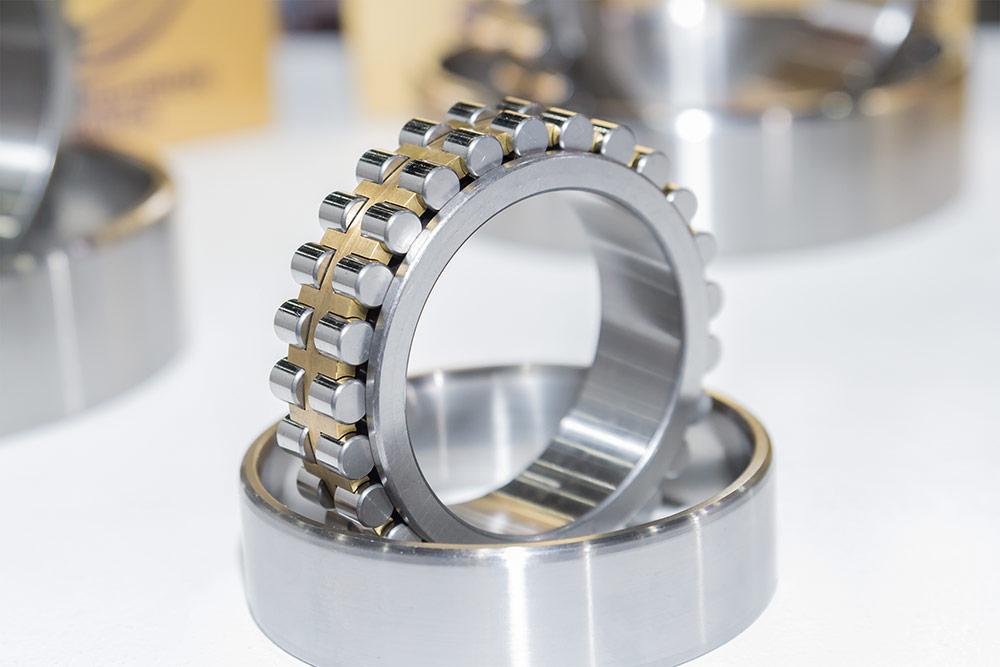
In-House CNC Service:
Bearing Replacement Service
Why Choose Our Bearing Replacement Service?

In-House CNC Service:
Bearing Replacement Service
Why Choose Our Bearing Replacement Service?
Extend CNC Machine Life with In-House CNC’s Bearing Replacement Services
Bearings are essential components in CNC machines, reducing friction and wear to keep operations running smoothly and efficiently. Over time, bearings experience wear, contamination, and misalignment, which can lead to reduced precision, machine failure, and costly repairs.
At In-House CNC, we specialize in expert bearing replacement services, ensuring your CNC machines operate with maximum accuracy and reliability. Whether you’re dealing with worn-out bearings, unexpected failures, or preventive maintenance needs, our team provides high-quality solutions to restore optimal performance.
Key Features of Our Bearing Replacement Services
Precision Diagnosis & Expert Assessment
At In-House CNC, we begin with a comprehensive evaluation to identify signs of wear, misalignment, or contamination in your bearings. Our technicians use advanced diagnostic tools to detect potential failures before they lead to costly breakdowns.
High-Quality Replacement Bearings
We source durable, high-performance bearings designed for CNC applications, ensuring they meet load capacity, speed, and environmental requirements. Whether you need ceramic, stainless steel, or specialized bearings, we provide the best fit for your machine’s demands.
Minimized Downtime & Extended Machine Life
Timely bearing replacement helps prevent machine failures, reduces downtime, and extends equipment lifespan. Our expert services ensure your CNC machine continues running with maximum efficiency and precision.
At In-House CNC, we provide end-to-end bearing replacement solutions, helping you maintain long-term reliability and peak performance in your CNC operations.
Signs That Your Bearings Need to Be Replaced
Unusual Noises During Operation – A humming, grinding, or squealing sound may indicate worn bearings struggling to function properly. Ignoring these noises can lead to increased friction and eventual failure.
Excessive Vibration or Machine Instability – If your CNC machine is shaking more than usual, it could be due to bearing wear or misalignment. Unchecked vibration can accelerate damage to other machine components.
Overheating or Increased Friction – Heat buildup in bearings is often caused by poor lubrication, contamination, or excessive wear. If left unaddressed, this can result in seized bearings and unplanned downtime.
Reduced Precision and Poor Motion Control – A failing bearing can cause positional inaccuracy, affecting machining quality and part tolerances. If your machine isn’t responding as expected, bearing wear may be the culprit.

How to Extend the Life of Your Bearings
Follow a Regular Maintenance Schedule
Routine inspections and preventive maintenance help detect early signs of wear before they escalate into costly failures. Keeping track of lubrication levels and bearing performance can significantly extend their lifespan.
Use the Right Lubrication
Applying the correct type and amount of lubricant reduces friction, prevents overheating, and minimizes wear. Using improper lubrication can cause premature failure and increased resistance in bearing movement.
Keep Your Machine Clean
Contaminants like dust, dirt, and metal shavings can accelerate bearing wear. Regular cleaning of bearing housings and surrounding components helps protect against unnecessary friction and damage.
Monitor Machine Performance for Early Warning Signs
Listening for unusual noises, checking for excess vibration, and monitoring temperature changes can help identify bearing issues before they lead to downtime. Addressing small issues early ensures long-term reliability.
By following these best practices, you can extend the lifespan of your CNC bearings, reduce replacement costs, and keep your machines running efficiently.
Partner with In-House CNC for Bearing Replacement Services
At In-House CNC, we specialize in bearing replacement and other essential services to keep your CNC machines running smoothly. Our experienced technicians use state-of-the-art equipment to ensure precise and reliable bearing replacements. We understand the critical role that bearings play in your operations, and we are committed to helping you minimize downtime and maintain peak performance. Don’t wait for a breakdown—contact us today to schedule your maintenance and avoid costly downtime.
Prevent Downtime with Expert CNC Bearing Replacement
Worn bearings can lead to machine inaccuracy, increased friction, and unexpected failures, impacting productivity and increasing repair costs. Replacing bearings before they fail is key to maintaining precision, efficiency, and long-term machine health.
At In-House CNC, our expert bearing replacement services help you avoid costly breakdowns and extend the life of your CNC equipment. Don’t wait for a failure—restore smooth, reliable motion with professional bearing solutions today.
